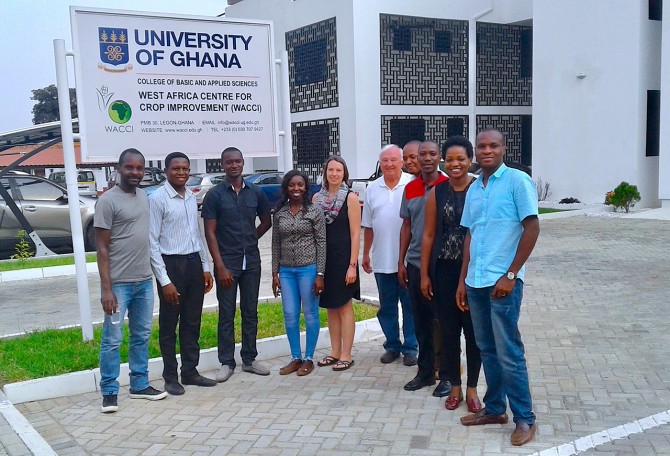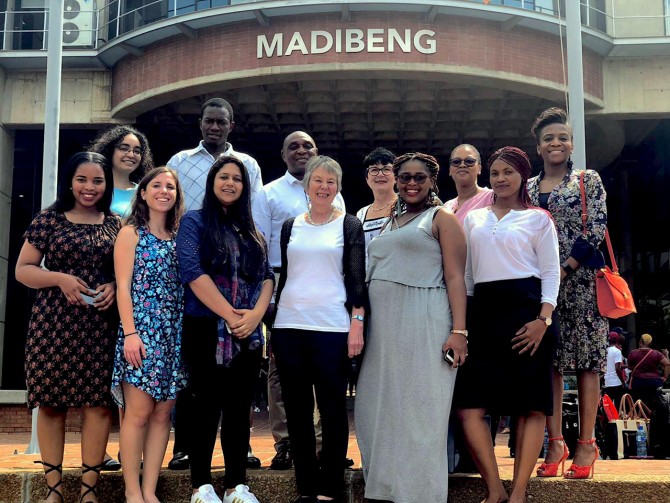Cornell librarians help train researchers in Africa
By Jose Beduya
Cornell University librarians go the distance to share knowledge that makes a difference – and, in January and February, two of them traveled to Africa to help researchers advance food security and legal scholarship.
Sarah J. Wright, a life sciences librarian, taught graduate students at the West Africa Centre for Crop Improvement (WACCI) in the University of Ghana; and Ariel Scotese, a law librarian and assistant director of the Legal Research Clinic, helped train nonprofit advocates in Johannesburg, South Africa.
Wright’s trip was sponsored by WACCI, a partnership between the University of Ghana and Cornell’s International Programs of the College of Agriculture and Life Sciences (IP-CALS). With Vernon Gracen, an adjunct professor of plant breeding and genetics, Wright taught scientific writing and library research using free and low-cost databases available through Access to Global Online Research in Agriculture (AGORA).
“Our goal is to help educate the next generation of plant breeders in Africa who are developing new crop varieties and fighting diseases and pests,” Wright said. “They need the most up-to-date info to prevent redundancies in efforts and so that they can build on the latest research.”
The trip was deeply rewarding for Wright.
“I became a librarian so I can make a difference in the world,” she said.
Scotese’s training sessions focused on legal research and scholarship through Global Online Access to Legal Information (GOALI), a platform managed by the International Labour Organization (ILO).
“Access to information is access to justice,” Scotese said. “The content available on GOALI is usually behind a paywall so a researcher from an institution that cannot afford to pay those fees is missing out on scholarship that discusses the law and how it is evolving.”
The GOALI workshop was hosted by the University of Johannesburg and funded by Engaged Cornell grants. The curriculum was developed with the help of the Information Training and Outreach Centre for Africa (ITOCA), a vital partner of the Cornell University Law Library since the mid-90s, according to Scotese.
Representatives from ITOCA and other nongovernment organizations attended the workshops to enhance their outreach and better guide others.
“The participants are information professionals who will promote GOALI and train researchers in eligible government organizations, law schools, research institutions and nonprofits,” Scotese said. “They’re raising awareness about this platform and teaching legal researchers how to use them.”
Cornell law students Medhavi Nautiyal and Dana Kinel assisted in running the sessions. “It was an opportunity of a lifetime, and I am extremely grateful that I was a part of it,” Nautiyal said.
Kinel said workshops like this not only stimulate legal scholarship but also inform policymaking. “Discussions about the law, as we had during the GOALI workshop, and the GOALI platform itself are big steps toward eliminating information imbalances and empowering people to create effective and just legal systems,” she said.
AGORA and GOALI are part of Research4Life, a multi-institutional partnership that includes the World Health Organization, Cornell University Library and hundreds of international publishers.
Jose Beduya is a staff writer, editor and social media coordinator for Cornell University Library.
Media Contact
Get Cornell news delivered right to your inbox.
Subscribe


